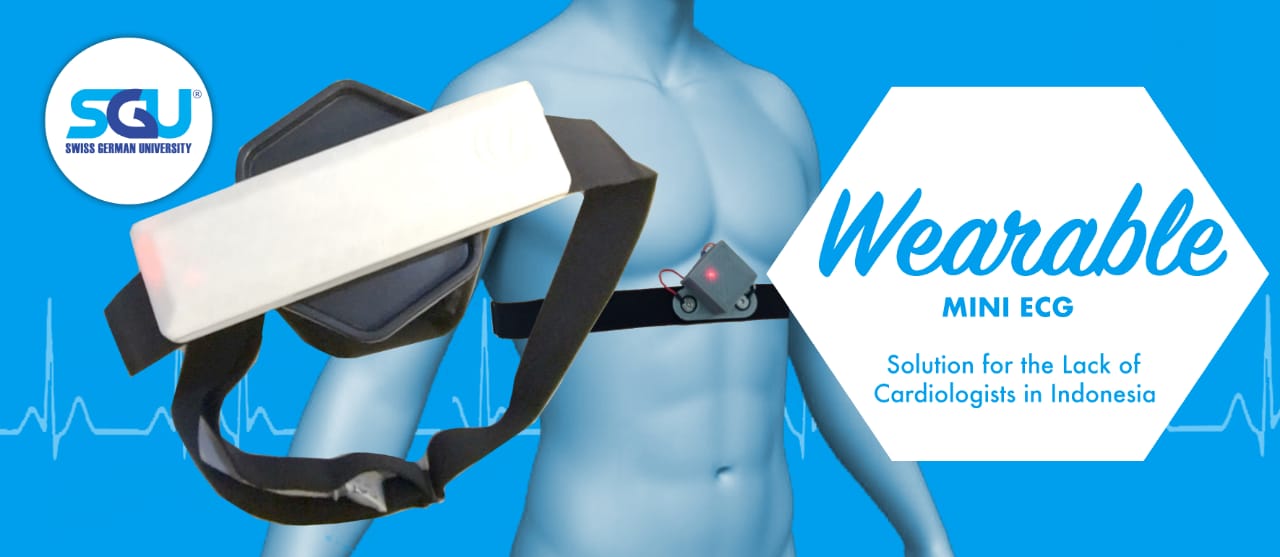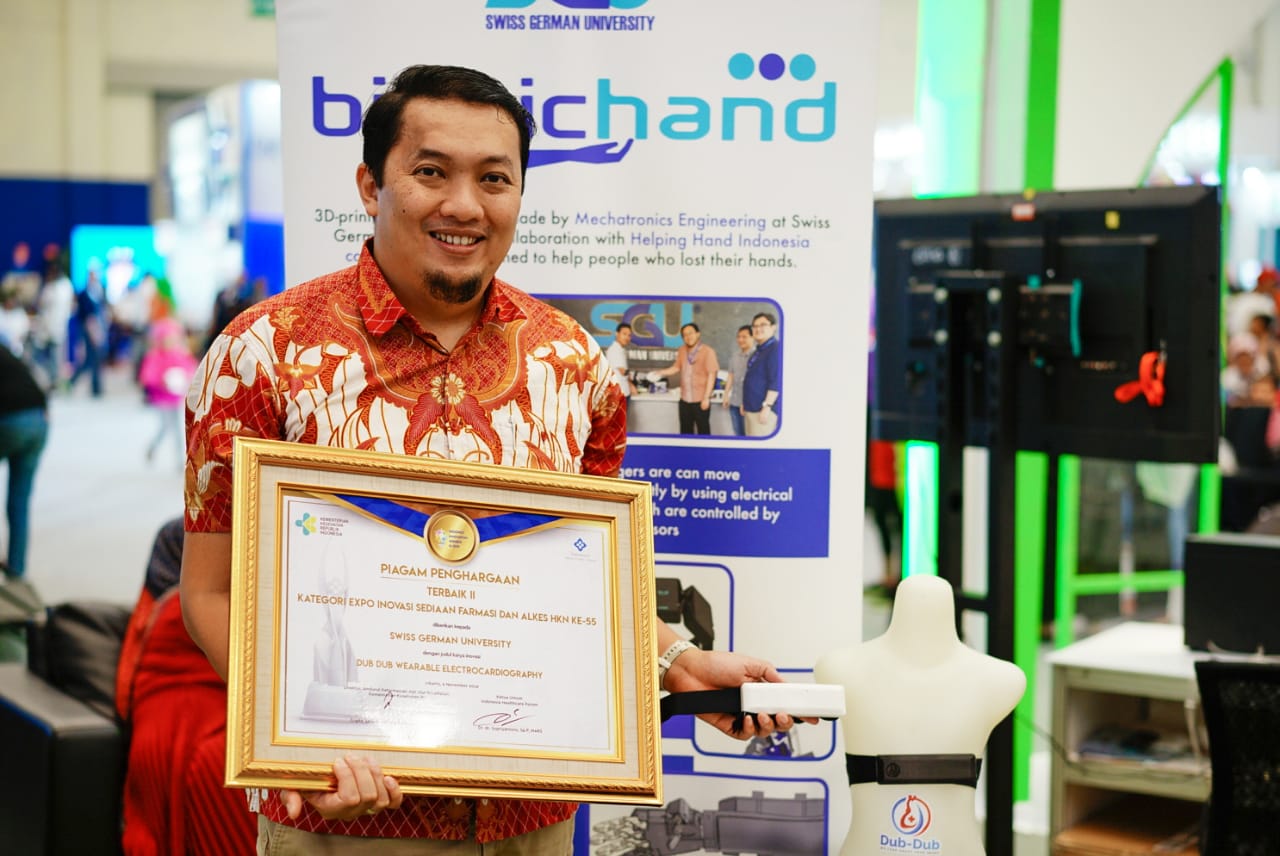
Wearable Mini ECG, Solution for the Lack of Cardiologists in Indonesia
Cardiovascular disease is the first cause of death in Indonesia. Basic Health Research data for 2018 conducted by the Ministry of Health of the Republic of Indonesia, shows that at least 2.7 million people in this country suffer from heart disease. That means, 15 out of 1000 people in Indonesia are detected suffering from this deadly disease.
Cardiovascular is a disease caused by malfunctioning of the heart and blood vessels. These types of diseases include coronary heart disease, heart failure, and stroke.
Unfortunately, the number of health workers who are experts in managing cardiovascular in Indonesia is still insufficient. Data from the Association of Indonesian Cardiovascular Specialists in 2017 states that the ratio between the number of cardiovascular specialists and the population of Indonesia is 1: 250,000. This ratio is much smaller than others countries in South East Asia such as Malaysia which has reached below 1: 90,000.
Most of these specialists are even concentrated on the island of Java. This has resulted in a minimal number of cardiovascular specialists outside Java.
This condition inspires Aulia Arif Iskandar to create a tool that can help detect heart defects from home. Aulia who served as The Deputy Head of Biomedical Engineering at Swiss German University has even developed this tool using artificial intelligence (AI) technology so that it can pre-diagnose if someone has heart disease.
“The background of the idea comes from the low number of cardiologists in Indonesia, especially outside Java. For example, there is only a few cardiologist in Medan, even though North Sumatra is one of the provinces with the largest number of heart disease sufferers in Indonesia, “said Aulia.
When diagnosing heart defects, doctors often perform tests by measuring and recording the heart’s electrical activity using a machine. This examination is called an electrocardiogram (ECG). In some cases, it is necessary to measure heart activity over a period of several days to months. This causes the doctor to take surgery to implant the device in the body.

Aulia creates an ECG that patients can do at home. The device is very small, which is 4.2 x 4.2 x 2.2 cm, in contrast to the large ECG in hospitals.
The use of this ECG also does not require a surgical method but is only attached to a certain point in the chest area. The device is equipped with a flexible strap that will help attach the ECG to the patient’s body.
ECG data analysis can be obtained right away with the help of applications on Android phones. The data is connected to the cloud which can then be accessed by a doctor or hospital. That monitoring heart activity can be done remotely. This is expected to be a solution to the uneven distribution of cardiac specialists in Indonesia.
After making a prototype of the tool, Aulia has received assistance from the Ministry of Research, Technology, and Higher Education of the Republic of Indonesia to develop the system into a tool that can be applied directly to the public. He has successfully secured a partnership with a cardiologist at Mayapada Hospital for this downstream project. Aulia has also filed a simple patent on the system, which is branded as Dub-Dub.
“The dub-dub was inspired by the sound of a heartbeat. In the future, two versions that will be marketed, namely for medical purposes and lifestyle, such as those used by runner, “said Aulia.
Currently, Dub-Dub is awaiting the process of obtaining a distribution license. Unfortunately, the trial process for obtaining this permit had to be delayed by the Covid 19 pandemic.
However, Aulia’s steps to develop an ECG system have not stopped. While awaiting the process of obtaining Dub-Dub’s distribution license, he has developed a prototype ECG using artificial intelligence. The difference with the first version is that system not only records heart activity but can also pre-diagnose if there are heart defects.
“The system will be taught what is the kind of heart disease. Initially, I put cardiology book material into programming. Furthermore, artificial intelligence can make him learn from cases that occur in each patient. So later the source of his knowledge will not only be from books but experience because everyone’s case can be different depending on his lifestyle,”he said.
Back